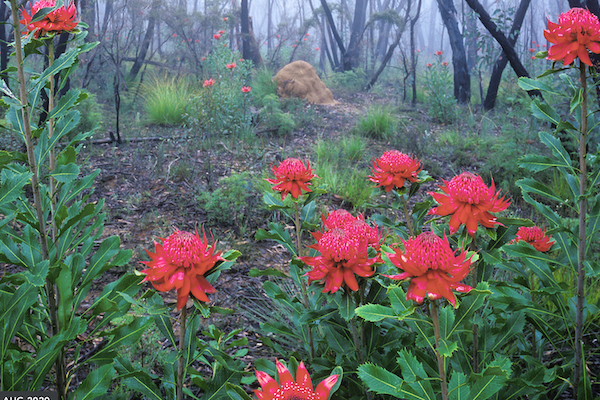Feminism in a Climate Emergency

During Australia’s ‘unprecedented’ fire season of 2019-2020, one of the fires that raged throughout the country was the Currowan State Forest fire in NSW. Included in the many things that this ‘monster on the loose’ engulfed was the rainforest property of one of Australia’s most influential environmental thinkers – Val Plumwood (1939-2008). The archive that remains housed at the Plumwood Mountain property is both a living and an inanimate one. The severity of the fires throughout the country last Summer, and exacerbated climate events globally, demand renewed attention be paid to the work of this pioneering feminist and ecological thinker for what it can teach us about living in a rapidly changing environment and which bodies are most acutely impacted by these changes.
Plumwood’s writings and activism were integral to a global movement of ecofeminism that began in the 1960s and consolidated in the 1990s. This movement exposed the uneven global effects of environmental degradation on women, girls and minority groups. Today, intergovernmental organisations such as the UN and IPCC acknowledge that the climate crisis is not gender neutral nor evenly distributed, but attempts to mitigate its effects are often deeply inadequate. In this webinar, Lara Stevens returns to Plumwood’s key contribution of illuminating the history of patriarchal attitudes to nature. She argues that in order to arrive at liveable solutions to the climate emergency we need a clearer understanding of how the violence against women and girls occurring today is connected to contemporary mining cultures, nuclear energy and natural disasters, to the injustices enacted on Black lives, to the destruction of sacred Indigenous sites for mineral extraction and why it is women and girls who are spearheading many of today’s most promising environmental and social justice movements.
This webinar is part of a series run by MSSI's Environmental Arts & Humanities Network.
SPEAKERS
Dr Lara Stevens is an ecofeminist scholar and artist and the author of Anti-War Theatre After Brecht: Dialectical Aesthetics in the Twenty-First Century (Palgrave, 2016), editor and translator of Politics, Ethics and Performance: Hélène Cixous and the Théâtre du Soleil (Re.press, 2016) by Hélène Cixous and co-editor of Feminist Ecologies: Changing Environments in the Anthropocene (Palgrave, 2018).
Jennifer Hamilton’s research sits between feminist environmental humanities and literary studies. Her publications to this end include This Contentious Storm: An Ecocritical and Performance History of King Lear and, with Astrida Neimanis, “Composting Feminisms and Environmental Humanities” and “weathering”. She works as a lecturer in English and works on Anaiwan country at the University of New England in Armidale. Her active community project is www.communityweatheringstation.net